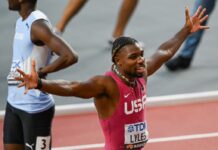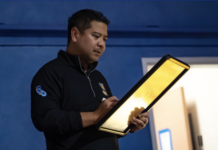
Although the series is a documentary in nature, episodes three and four of “The Last Dance” shifted slightly into a Hollywood arc, a narrative of the hero’s journey, with Michael Jordan at the helm of redemption. This is achieved, of course, with Phil Jackson as the mentor and Dennis Rodman as the problem to be fixed. The turning point in the Bulls dynasty was defeating the Detroit Pistons, the team that became a thorn in the Bulls side for three years.
Episode two shed light on Scottie Pippen’s decision to intentionally delay a surgery and miss the start of the ‘97 to ‘98 season. As he battled a wage dispute with the Bulls’ management, Rodman was left to fill Pippen’s role as Jordan’s right hand man. Jordan and Pippen recognized what Rodman brought to the team defensively — Rodman had the ability to easily disrupt the opposition’s offense. Off the court, Rodman also had a peculiar and mercurial personality. The series showed the Bulls working around Rodman’s complex nature instead of confronting it directly.
The pressure of playing under Jordan’s demanding regime was eased after Pippen returned to the team. Rodman requested a midseason vacation from head coach Phil Jackson that was eventually granted, but only with Jordan’s approval. Jackson provided Rodman with 48 hours to travel to Las Vegas and relieve some stress in the middle of the season, something truly unprecedented in modern sports. This trip was an epic and early version of load management that players like Kawahi Leonard and Kristaps Porzingis have popularized in today’s game in response to psychological stress. When Rodman did not return within the designated time, Jordan took it upon himself to travel to Nevada and bring him back.
Very little was depicted about Rodman’s time in Sin City, but from that point on, he never missed a game. Rodman admitted difficulty adjusting to Pippen’s return, describing his inability to focus at times. Although his teammates talked on his pattern of drifting from the team at times, they highlighted his ability to return and perform greatly on the court when the time came.
The episode shifts focus on the organization as a whole. Before they reached undisputable greatness, Jordan and the Bulls struggled to overcome the Detroit Pistons. The team, which consisted of Isiah Thomas, Bill Laimbeer and John Salley, adopted a gritty philosophy to contain Jordan’s superior athletic ability. Dubbed “The Jordan Rules,” the team stopped at nothing to prevent Jordan from entering the paint.
In an era where the NBA was more lenient on contact, the Pistons made it a mission to drop Jordan to the ground every chance they had. They were not afraid to get physical. This inspired a complete makeover of not only Jordan’s physique, but also the team’s philosophy about playing the match around more than just Jordan. To withstand the forthcoming hard play, Jordan worked to add 15 pounds to his frame.
Though Jordan and Jackson developed a stunning player-coach relationship, the episodes showed that it was not that way at the outset. Under Jackson’s predecessor, Doug Collins, Jordan was at the center of the offense with the ball in his hands. According to Jordan, Jackson’s philosophy involved taking the ball out of his hands to involve the rest of his teammates.
With the addition of Jackson and Tex Winter to the Bulls in ‘89 came the renowned triangle offense. Teams now had to gamble between expending multiple players on Jordan or distributing their defense evenly. The team managed to improve greatly on offensive shooting beyond the arc although they were defeated by the Pistons for a third time in their postseason meetings.
In a win-or-go-home game, Pippen came down with a migraine on the eve of the meeting. Jordan’s go-to guy performed underwhelmingly, going 1-of-10 on the field. Playing 42 minutes of the match, he was only able to contribute two points of the Bull’s 74 points to the Piston’s 93.
The Bulls would have to wait another year before taking care of the Pistons and advancing to the 1991 NBA Finals. There they met the Los Angeles Lakers, led then by Magic Johnson, and won the title in five games. This first championship was the start of the initial three-peat in Jackson and Jordan’s tenure with the Chicago Bulls.







